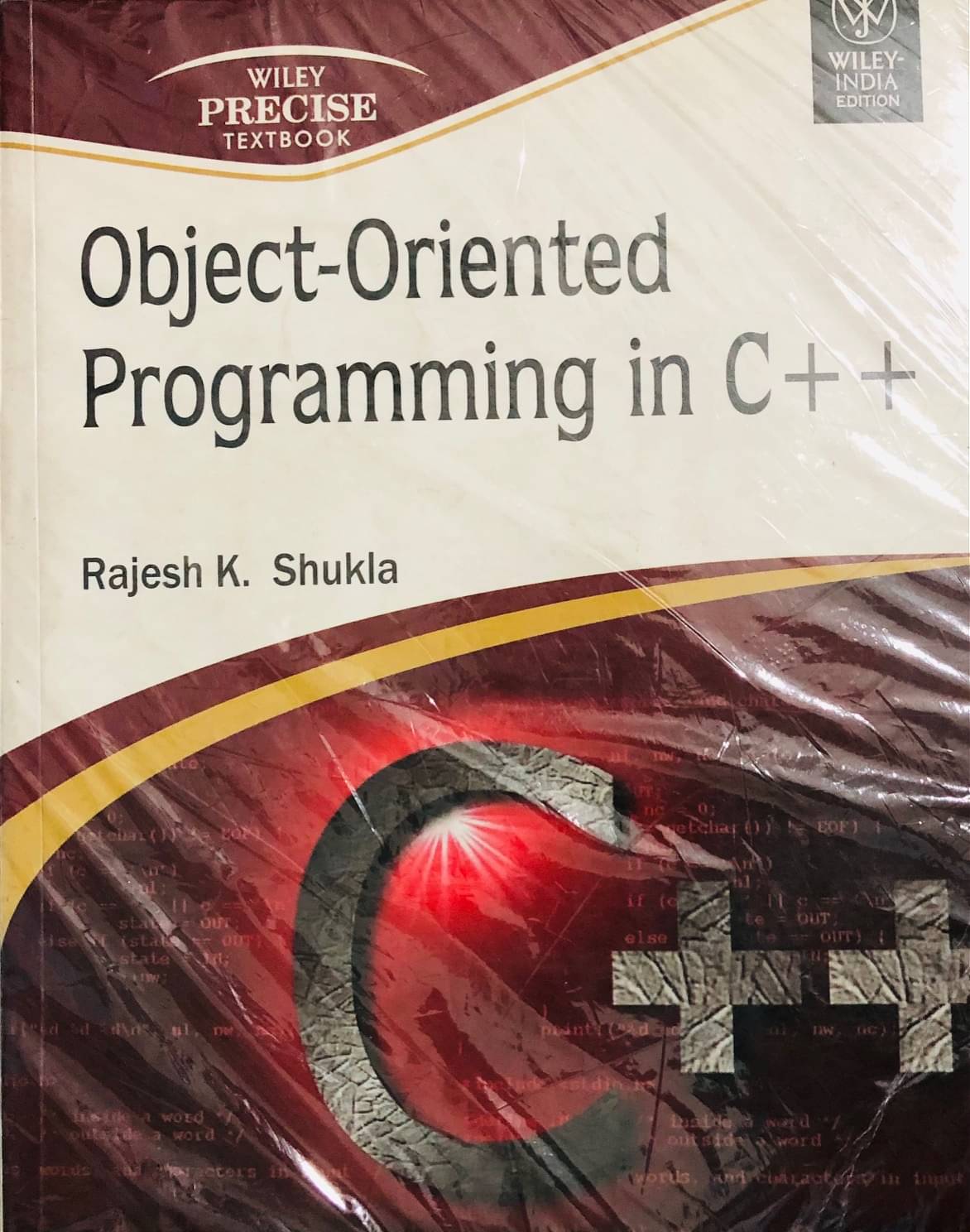This book offers solid, effective and easy to understand approach to the study of fundamental Object Oriented Programming. The book is a boon for general readers, C++ Professionals, and students from both graduate and postgraduate courses in computer engineering, who are inquisitive to explore each and every aspect of OOPS and C++. It renders expansive information about a wide array of topics like C++, arrays, structures, unions, bit fields, functions, pointers, template, exception handling, file handling and graphics with numerous examples. The text comprises fourteen chapters and each chapter is further divided into modules of major topics. Each module has a uniform structured presentation starting with learning objective, declaration, implementation, example programs, operations, and types, summary, multiple choice sections, programming assignments, review questions followed by the solution of the programming assignments.
Key Features
Covers the complete syllabus of various universities offering course on object oriented programming methodologies
Concepts are well illustrated through examples and tested programs
Multiple choice questions are included at the end of each chapter
Model question papers are also included
Theoretical part is supported with C++ implementation. The attached CD contains numerous tested and debugged programs
Strong emphasis is given on implementation and examples throughout the book
About The Author
Professor Rajesh K. Shukla is an Assistant Professor and Head of the Department of Computer Science and Engineering at the Oriental Institute of Science & Technology, Bhopal. He is BE and M Tech in Computer Science and Engineering from Samrat Ashok Technological Institute, Vidisha and is currently pursuing his doctorate. His area of research includes data mining, web mining, speech recognition and artificial neural networks. He has been actively teaching concepts like OOPS, C++, TOC, DBMS Data Structures, Neural Network and Compiler Design for the past nine years. Professor Shukla has also organized many National level workshops on technical subjects like Oracle, Linux, Mobile Computing, ANN & Support Vector Machines and a staff development program related to his subject. He is associated with different universities as a guest faculty, as a counselor, as an Examiner and for other academic assignments. Additionally, he has presented many papers in national and international conferences.
Professor Shukla is a Life Member of Indian Society for Technical Education (ISTE), Computer Society of India (CSI), The Indian Science Congress Association and a member of ACM and International association of Engineers.
Table Of Contents
Chapter 1: Fundamentals of Object-Oriented Programming
1.1 Procedure-Oriented Programming Concepts
1.2 Object-Oriented Programming Concepts
1.3 Characteristics or Features of OOPs
1.4 Modeling Real-World Objects
1.5 Types of Objects
1.6 Kinds of Relationships
1.7 Class and Object Diagrams
1.8 The Object-Based and Object-Oriented Languages
1.9 Advantages and Disadvantages of OOPs
Chapter 2: Basics of C++
2.1 Similarities in C and C++
2.2 Differences between C and C++
2.3 Basics of C++
2.4 Data Types
2.5 Type Conversion
2.6 Variables
2.7 Literals or Constants
2.8 Operators
2.9 Comments in C++
2.10 Structure of C++ Program
2.11 Statements in C++
2.12 Iteration or Looping Statements
2.13 Breaking Control Statements
Chapter 3: Functions
3.1 Declaration of a Function
3.2 Parameter Passing Mechanism
3.3 Types of Functions
3.4 Scope Rules
3.5 Storage Class
3.6 Advantages of Functions
Chapter 4: Arrays
4.1 Defining an Array
4.2 Types of Arrays
4.3 Arrays and Functions
Chapter 5: Structure, Union and Bit Fields
5.1 Declaration of a Structure
5.2 Accessing the Structure Element (The Dot Operator)
5.3 Initialization of a Structure
5.4 Array within Structure
5.5 Union
5.6 Bit Fields
Chapter 6: Pointers
6.1 Declaration of a Pointer
6.2 Initializing Pointers
6.3 Pointer Arithmetic
6.4 Pointers and Single-Dimensional Arrays
6.5 Pointers and Two-Dimensional Arrays
6.6 Pointers and Multidimensional Arrays
6.7 Arrays of Pointers
6.8 Pointers and Strings
6.9 Pointers and Structures
6.10 Pointers and Functions
6.11 Pointers to Pointers
6.12 Dynamic Memory Management
6.13 Constant Pointers
Chapter 7: Classes and Objects
7.1 Declaration of a Class
7.2 Defining the Member Functions
7.3 Creating the Objects
7.4 Class and Arrays
7.5 Objects and Functions
7.6 Friend Functions
7.7 Pointers and Objects
Chapter 8: Constructors and Destructors
8.1 Structure of a Constructor
8.2 Types of Constructors
8.3 Destructor
Chapter 9: Inheritance
9.1 Structure of Inheritance
9.2 Types of Derivation
9.3 Importance of Inheritance
9.4 Types of Base Class
9.5 Types of Inheritance
9.5 Virtual Base Class
9.6 Constructor Invocation in Inheritance
9.7 Parameterized Constructor Invocation in Inheritance
9.8 Destructor under Inheritance
9.9 Container Class
Chapter 10: Polymorphism
10.1 Types of Polymorphism
10.2 Compile-Time Polymorphism
10.3 Run-Time Polymorphism
10.4 Virtual Destructor
Chapter 11: Template and Exception Handling
11.1 Declaration of a Function Template
11.2 Declaration of a Class Template
11.3 Exception Handling
11.4 try, catch and throw
11.5 Exception Generated by the Function
11.6 Multiple Catch Blocks
11.7 Single Catch Block for All Exceptions
11.8 Restrict the Exceptions
Chapter 12: File Organization
12.1 Stream
12.2 Basic Operations with Files
12.3 Binary Files
12.4 Random Access Files
12.5 Error Handling in Files
12.6 File Pointers and Random Access
Chapter 13: Turbo Graphics
13.1 Library Functions of the Text Mode
13.2 Library Functions of the Graphics Mode
13.3 Library Functions for Drawing an Object
13.4 Library Functions for Text, Style and Color Selection
13.5 Library Functions for View Port
13.6 Library Functions used for Animation and Sound
Chapter 14: Preprocessor Directives and I/O
14.1 C++ Stream
14.2 Preprocessor Directives
14.3 Header files
14.4 Manipulators
14.5 Unformatted I/O Functions
14.6 Character Testing and Conversion Functions
14.7 String Manipulation Function
Key Terms
Multiple-Choice Questions
State whether True or False
Review Questions
Programming Assignments
Answers
Solutions of Programming Assignments

